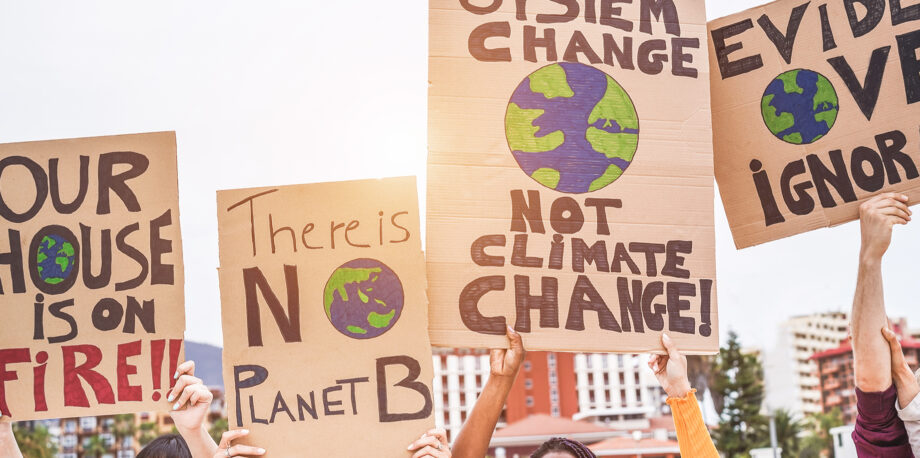February 14, 2020 —  To fund, or not to fund? That is the question for organizations backing research on the world’s climate crisis — the question they must ask about every proposal that crosses their desks.
To fund, or not to fund? That is the question for organizations backing research on the world’s climate crisis — the question they must ask about every proposal that crosses their desks.
A new analysis of money that governments and independent organizations spend on climate change research indicates that just 5% of funds over the past three decades have gone toward projects studying political, psychological, economic and other social science dimensions of mitigation. Most climate research funding instead flows to the natural and physical sciences.
That’s a lopsided picture, argue Indra Øverland and Benjamin Sovacool, the two European social scientists who authored the paper. While advances in science and technology have delivered new tools in the fight against climate change, the researchers contend, one of the “most urgent unsolved puzzles” is getting people and institutions to use those tools and stop global temperatures from spiking higher than 1.5 °C (2.7 °F) over preindustrial levels.
“Natural scientists and policymakers tend to just assume that if the natural and technical sciences identify the problem and solutions, society will automatically solve the problem,” Øverland, head of the Norwegian Institute of International Affairs’ Centre for Energy Research, wrote in an email to Ensia. “I think the past three decades have proven that assumption does not hold.”
Published in the journal Energy Research & Social Science, the study reviews grants from hundreds of government agencies and other organizations around the world that fund academic research, such as the European Commission and the U.S. National Science Foundation. Grants assessed were from the Dimensions database.
Between 1990 and 2018, the natural and technical sciences received billions of dollars in climate change-related research funding. The social sciences and humanities? Just US$393 million for climate change mitigation, the researchers estimate.
The numbers aren’t exact, since the researchers identified relevant studies using climate-related keywords rather than reading unfathomable numbers of research papers in full. Also, some funding organizations aren’t included in the Dimensions database.
When it comes to changing attitudes, social norms and economic incentives to fight global heating, many options are on the table. “Choices need to be made about institutional design, negotiating strategies, communication strategies, incentives and so on,” Øverland wrote. “Finding out which ones are effective is a social science task.”
Some funders have restrictions that limit their ability to invest in social science research. Michael Dwyer, a spokesperson for the Natural Sciences and Engineering Research Council of Canada noted in an email to Ensia that legislation directs the agency’s efforts only toward engineering and the natural sciences.
In another email, Magdalena Schaeffer, a spokesperson for the publicly financed German Research Foundation (DFG) — an organization whose grants were analyzed in the study — wrote that the DFG determines grants according to the excellence of research proposals and has “no specific funding initiative for social science research on climate mitigation.” Some other German agencies do target funding specifically for social science on the subject.
Other funding organizations contacted by Ensia did not comment on the record, including the U.S. National Science Foundation, the Japan Society for the Promotion of Science, the National Natural Science Foundation of China, South Africa’s National Research Foundation and the Russian Foundation for Basic Research.
Øverland and Sovacool, a University of Sussex energy policy professor, write in the paper that funding organizations should boost funding for climate mitigation “to match the magnitude of the threat.” At the same time they call for social scientists to work toward greater “rigor and validity” in their studies while doing more research on areas emitting the most greenhouse gases.
Climate change, the paper contends, is a global social challenge. “Will the Paris Agreement work? What are the concrete suggestions for an alternative and more binding global solution?” the authors write. “How could households be convinced to adopt low-carbon lifestyles? How can decarbonization be promoted across cultures and market economies as diverse as China, Russia, Saudi Arabia, Singapore, and the United Kingdom?”
With more funding, social scientists might gain actionable insights into these questions and others whose answers shape the future of everyone on Earth.
Related Posts
Ensia shares solutions-focused stories free of charge through our online magazine and partner media. That means audiences around the world have ready access to stories that can — and do — help them shape a better future. If you value our work, please show your support today.
Yes, I'll support Ensia!


